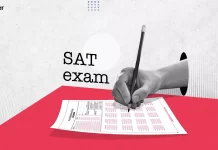The desire to understand education and make something out of it has led to the emergence of myths. These myths are then spread around institutions and throughout the world to the point of believing that they represent facts. In many cases, parents, teachers, students, and other stakeholders cannot differentiate between the truth and the fallacies represented by the myths. In this blog, you will know 5 Crazy Educational Myths.
Myths have caused parents, policymakers, and students to follow mirages, ending up in exhaustion and frustration. It takes a little digging into the myths to realize that they cannot hold on their own. Here are some of the common crazy educational myths that need to be debunked about education.
- There Are Better Schools
Students have high schools, colleges, and universities that they prefer. Parents spend a lot of resources and energy in an attempt to get their students into these schools. The assumption is that a student getting into a college or institution will automatically perform well. Unfortunately, this is not always the case.
A good student will perform well and make something out of life regardless of the school he or she attends. Every student in every school can perform best college essays, homework or science projects. A school acts as an enabler to learning, and it is the student who will take the actual studies. If a student fails to study, the school will make no difference. It is time to reduce competition for the so-called ‘top schools’ and focus on the potential of every student. After all, teachers are taught in similar colleges and will take the same curriculum. The student makes a difference.
2. Technology Will Replace Teachers
Technology is taking over the world. It is causing massive layoffs and replacing a lot of workers in different fields. But is technology about to replace the teacher? This myth has been blown out of proportion by digital colleges and the incorporation of AI in learning. Regardless of advancements in technology, the teacher will remain the most pivotal person in the learning environment.
Technology is providing data on areas of the perceived difficulty in learning. However, a gadget and the best AI cannot understand or diagnose the issues causing poor performance. It will take a trained teacher to diagnose the problem and provide a solution. Students are also not in a position to choose the materials for learning and get it right. The scenario brings the likelihood of students choosing the easiest subjects and topics. They would be inadequate to perform in the current work environment.
3. More Resources Mean Better Performance
Lobbyists, parents, and administrators are always pushing for more resources in schools. The assumption is that more resources will help the students and institutions to produce better results. However, the reality is different and has been demonstrated by small schools emerging winners with minimal resources.
The reality is that results in a school come more from its software than the hardware. It is the motivation in students and the traditions set that will deliver results. Pouring more resources in a de-motivated school will just be a waste. This does not mean that the resources are not necessary.
4. There Is Personalized Education
Institutions claim to offer personalized attention to their students. However, this is a myth aimed at luring more students into the school. All students have to be prepared using the same methods to sit for a similar examination. They will also be working in the same industry. This makes the idea of a personalized education a myth that must be discarded.
5. Education Equals Success In Life
Education is good but will not turn you into the most successful person. After all, the most successful persons around the world are not necessarily the highest educated. Get basic education and then specialize in an area that you think will earn you a fortune. Success will come from what you do with what you know.
New myths will emerge based on what other people are experiencing with their education. The old ones will also persist because they are easy to believe. The most important thing is to recognize the myths and ensure that they do not cloud your judgment about different elements of education.









